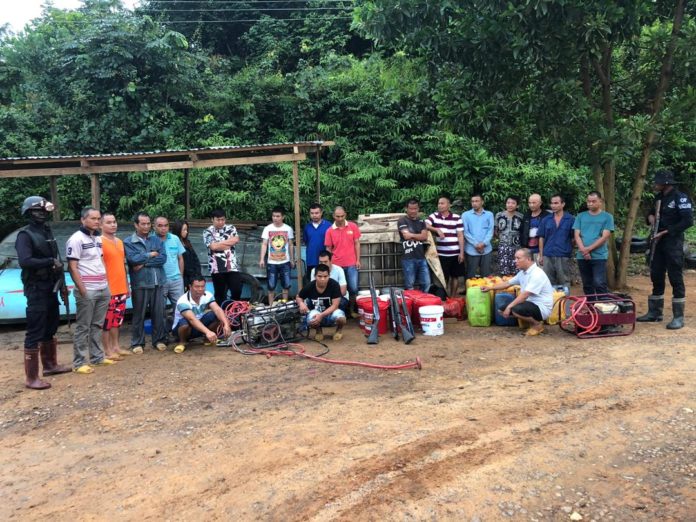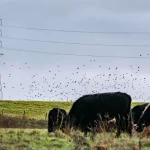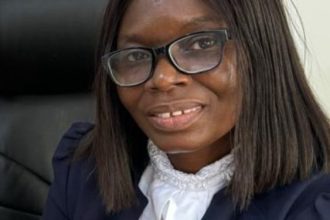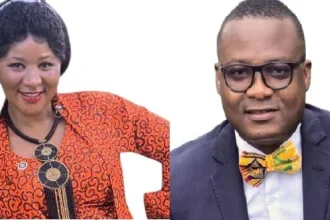Conspiracy theories are not new to Africa. Bitter lessons from the recent past, especially during the cold-war era and revelations from WikiLeaks and recently declassified CIA files, have created enough fodder to feed into such narratives. The threat of new vaccine tests as a source of dominance over the African continent, laughable as it is, holds firm in such narratives due to the inherited paranoia and lessons from the previous generation.
Wait, lessons?
Did Africa learn any lessons from the Cold War? Unfortunately, not. While we have been all directed to the alluring bait of a conspiracy along the lines of a post coronavirus world where Africans become the living implementation of zombie-type or apocalyptic movies where we all walk around controlled by bio-chips with every brain wave of all 1 billion Africans, a bigger and more real threat looms.
This threat is not a biological one, but an economic one. The World Bank predicts a recession over year on year economic growth leading to economic growth sinking as low as -5% in 2020 as against 2.4% last year. Output losses could be as much as $79 Million in sub-Saharan Africa for the year. With the fall of crude prices worldwide, economic powerhouses like Nigeria, and oil-dependent economies like Angola will possibly bear an even bigger brunt of the recession.

But this is not even the icing on the cake. While the likes of the United States and the European Union battle with their own recovery plans, attention will be more on sustaining production and growth in their local markets. That leaves Africa at the mercy of China.
Between April 2020 and December 2022, 24 sub-Saharan countries will be holding democratic elections. The success of incumbents in these elections depends greatly on the ability of these countries to be able to steer their respective economies out of the recession that is bound to hit, or in some cases are already hitting their people.
The business of elections is very different from the business of crisis and disaster management. While smarting from the global effects of the Coronavirus crises, governments will need to justify their tenure to an electorate that would have been bearing steadfastly the brunt of a global economic meltdown they didn’t cause. In a bid to secure goodwill and favours, most leaders will resort to grandiose measures that will endear them to their people. Already, in countries like Ghana, Rwanda and Togo, utility bills have been discounted or cut altogether. A similar gesture of a presidential moratorium on rent for 3 months in Uganda. Expect that over the course of April 2020, such interventions will almost become fashionable. These are all coming at a time when national budgets will have to be revised due to severe revenue and tax shortfalls. We will only have to resort to debt.
Gov’t to absorb electricity bills of vulnerable, 50% subsidy for others – Akufo-Addo
Already, even before the pandemic, Africa’s public debt had already increased to about 60% of its GDP. Of the 35 low-income countries in Sub-Saharan Africa, 7 are in debt distress and a further 9 are in high risk. Some of these countries are the ones facing crucial elections over the next 2 years. Incumbents will have to juggle the prospects of losing power due to public disaffection and managing the fiscal integrity of the already underpowered economies. The only resort will be a rescue package that will guarantee electoral success.
Who is going to bear the chalice that will offer the short-term success?
While Europe and the United States will be running their own stimulus packages, SSA will have to turn to private debt and donor partners for stimulus packages, and the World Bank and IMF are already in negotiations with several African countries to package these. Already, we have gone cup in hand to beg for some $150 Billion from the G20 for stimulus packages to stabilize our economies. Those monies won’t come cheap, especially for those eager to please for electoral purposes.
The real godfather of Africa will be China. With an economy quickly rebounding from the effects of COVID-19 and flush with cash, China’s economic growth even in this time will give it a bigger bargaining power. The steep fiscal requirements that the Bretton-Woods institutions used to keep nations in check, including anti-corruption and governance criteria will not be on the main agenda in giving handouts.
The question is, while Africa recovers from the economic devastation, will it be in China’s interest to give out cash to improve our economies and capacity at its expense?
No. Why is that?
China’s investments are focused on where they will gain the most from Africa. By investing in our transport sector, they have very easy access to our natural resources. They will then send hordes of their people to come in and cash in on those resources using the goodwill gained from generous loans offered without strict conditions. You don’t need to look too far. Illegal alluvial gold mining in Ghana has been taken over by Chinese, who are flouting with impunity local laws. In the copper belts of DRC and Zambia, the Chinese have come in to run the show. Their over $100 Billion dollars invested in transportation since 2004 in sub-Saharan Africa is testimony to this. They didn’t do it because they love Africa.

Juxtapose that with a similarly huge $97.9 Billion investments in energy isn’t because they intend Africa to be self-sustaining in Energy. Companies like CNOOC and the rest are investing heavily in oil reserves and other strategic fuel deposits to make sure that they have cheap sources of energy to fuel their continent.
Compare these two with a total of $810 million in health across Africa for the time period. If they indeed did care much about Africans, why is it that they are spending 0.5% of the total spend on energy and transport on health. With health being one of the biggest problems in Africa, one would expect that it would have taken at least not less than 5% of investments.
Let’s argue that health isn’t a major priority, but that Africans gain from technology investments. Is that the case? Only 7 countries in SSA have had investments into technology over $100 million. Over this period, only a total of just over $7 billion has been invested in technology across SSA. Similarly, only $5.8 billion has been spent in agriculture.
The significance of all these figures is very simple. We should not sit down and think that China’s benevolence and generosity to Africa is for the continent’s interest. What we should begin to do is to be very vigilant. Over the next 32 months, Africa will be at its most vulnerable period because its leaders will face the dilemma of mortgaging the freedom and sovereignty of their nations and people, and free money for grandiose political misadventures to hang on to power.
While we are focused on the mirage of some dominance via 5G by western powers and fictitious technology advancements, the true monster is the vulnerable states of our respective economies and how the vultures are circling for the spoils.
The real risk and threat to Africa and Africans post-COVID-19 is not 5G and technology, it is economics and choices. The question is, are we ready?
















